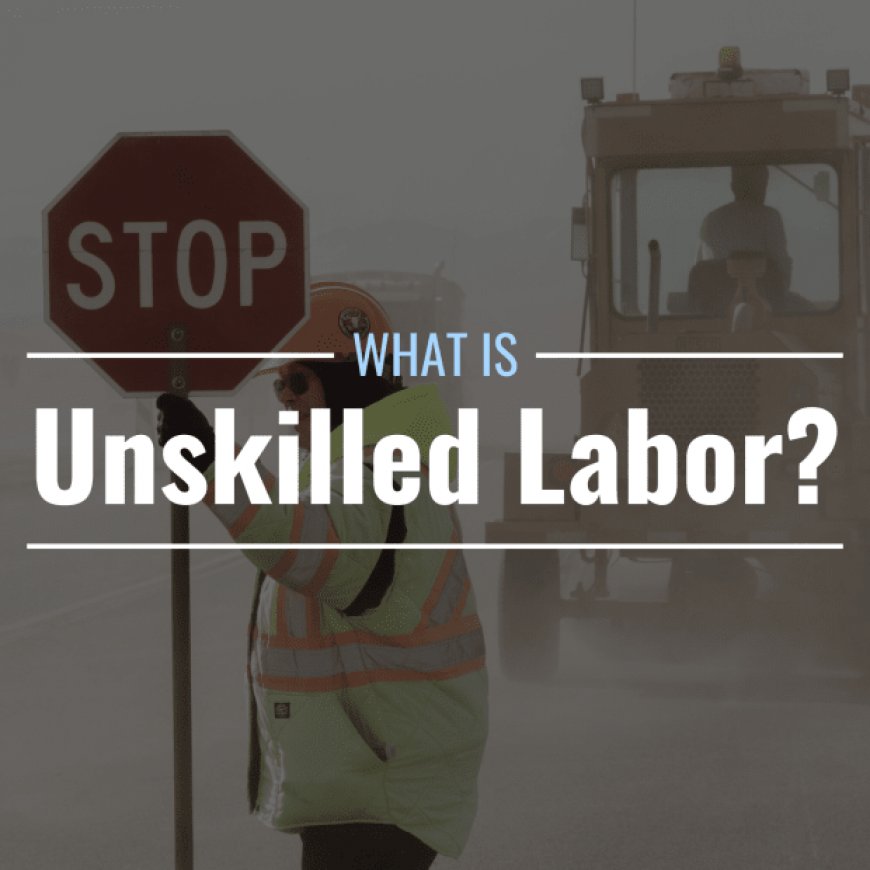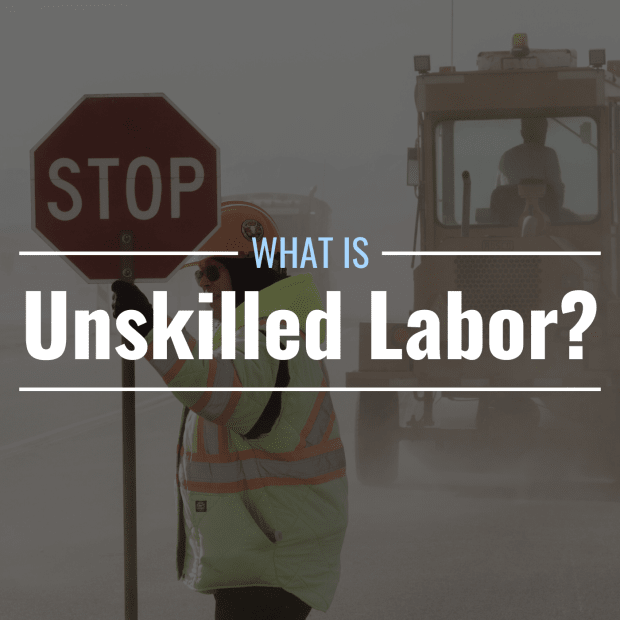What Is Unskilled Labor? Definition, Characteristics & Controversy
In broad discussions about employment, it’s not uncommon to hear references to vague occupational categories like skilled and unskilled labor, as well as equally vague employee categories like skilled and unskilled workers. The terms “unskilled labor” and “unskilled worker” are both somewhat ...


In broad discussions about employment, it’s not uncommon to hear references to vague occupational categories like skilled and unskilled labor, as well as equally vague employee categories like skilled and unskilled workers.
The terms “unskilled labor” and “unskilled worker” are both somewhat problematic and inaccurate at face value, but since they have been used for so long and continue to be referenced in conversation and media, it’s important to know what they are supposed to mean.
What Is Unskilled Labor?
The concept of unskilled labor was coined by the Bureau of Labor Statistics to describe occupations that do not require a formal collegiate education, apprenticeship, or other specialized training (other than the initial training given on the job post-hire). Additionally, unskilled labor typically involves some sort of repetitive task—often a physical one.
According to staffing company Tower Eight, an unskilled position is one that an “average person could learn … fully in 30 days or less.” In 2020, the Social Security Administration defined it as “work which needs little or no judgment to do simple duties.”
Common examples of so-called unskilled labor occupations include harvesters, pickers, construction-site cleaners, retail and supermarket clerks, dishwashers, custodians, and information desk clerks.
Unskilled vs. Skilled Labor: What’s the Difference?
The counterpart to unskilled labor is skilled labor, which is a broad category of occupations whose commonality is that they require more extensive education or training than could be conferred on the job, meaning that the average person would not be qualified for them unless they had participated in a requisite training program prior to applying. What this training entails varies from job to job and can range from a specialized certification course to an apprenticeship to a university/graduate/Ph.D. program.
In some cases, the necessary experience or training required for a skilled labor position can be gathered on the job over time, usually by moving up within an organization to positions of subsequently higher seniority and responsibility. For instance, someone could start as a line cook at a restaurant, then work their way up to junior chef, then to station chef, deputy chef, head chef, executive chef, and so on, perhaps eventually opening their own restaurant.
Why Is Unskilled Labor a Controversial Term?
“Unskilled labor” is a controversial term partially because it is a misnomer—in other words, the meaning implied by the term itself is inaccurate. The term “unskilled worker” may also be considered offensive because it can be interpreted as devaluing the inherent worth of those it is used to describe.
Individuals who work in so-called “unskilled labor” positions are not without skill, and their jobs are not necessarily simple or easy. Many jobs that fall into the unskilled labor category require difficult and repetitive physical labor, intense concentration, multitasking, interpersonal skills, endurance, and other crucial skills in order to be performed successfully. These skills are no less important than niche skills like computer programming, but those who use them at work do not typically attend school or trainings in order to get them, although such programs do exist.
In reality, the difference between skilled and unskilled labor is simply the presence of training or educational prerequisites in order for an applicant to be considered. And while in many cases, intensive education and training is necessary for the satisfactory performance of a skilled labor position (e.g., programmer, nurse, lawyer, etc.), there are many positions in this category for which specialized training may not actually be necessary for satisfactory performance, although it is usually required (e.g., team manager, sales representative, writer/editor, etc.).
In general, the “skilled” and “unskilled” categories are unnecessarily broad and reductive, so their use has diminished to some extent, but nevertheless, they remain somewhat prevalent in media and economic discussions, so it is important to know what they refer to.
Why Are Unskilled Workers Important?
During the height of the COVID-19 pandemic in 2020 and 2021, many of the workers dubbed “essential” by the government and lauded as “heroes” by the media were previously and subsequently considered unskilled, including grocery, restaurant, and retail workers as well as gig-based delivery and transportation workers (Lyft, Uber, DoorDash, etc.). Unskilled labor is a major part of what keeps most industries—both essential and non-essential—running.
Most of these sorts of jobs pay comparatively poorly, which some think is partly the result of their longtime association with the potentially problematic concept of unskilled labor. Whether a job requires extensive education or training often has no real bearing on how grueling, demanding, or difficult that job may be. In many cases, “unskilled” jobs require just as much (or more) mental or physical fortitude than their “skilled” counterparts. Nevertheless, many of these sorts of positions do not pay a living wage, partially because the enforceable minimum wage (which varies between states and municipalities) is lower than the associated living wage in all parts of the United States.
Frequently Asked Questions (FAQ)
The following are answers to some of the most common questions asked about unskilled labor that were not covered in the sections above.
Why Are Unskilled Workers Paid Less Than Skilled Workers?
There is no one reason why unskilled workers make less than skilled workers, but a popular explanation for this disparity in pay is the concept of supply and demand.
Some contend that the large supply of so-called “unskilled laborers” means that potential employers do not have to compete for them by offering high wages. Similarly, this contention implies that trained and educated workers with specific skill sets are fewer in number, resulting in higher demand among employers, which translates to higher pay.
How Much of the U.S. Workforce Is Employed in Unskilled Labor?
According to Statista, approximately 16% of the U.S. workforce was employed in “low-skill” positions as of the organization’s 2020 survey.
Which Unskilled Labor Jobs Pay the Best?
Pay for any given position within the “unskilled labor” category varies quite a bit geographically, but in general, the following occupations and industries are thought to offer relatively high pay compared to other unskilled labor opportunities.
- Oil rig workers
- Miners
- Street flaggers
- Power plant operators
- Truck drivers
- Logging workers
What's Your Reaction?



























































